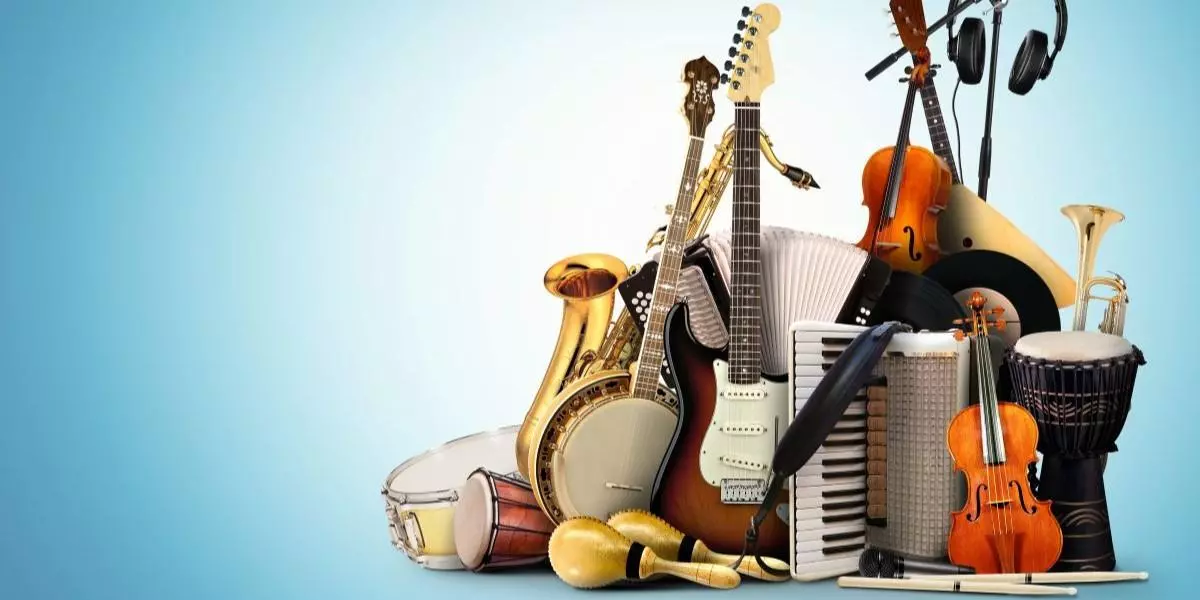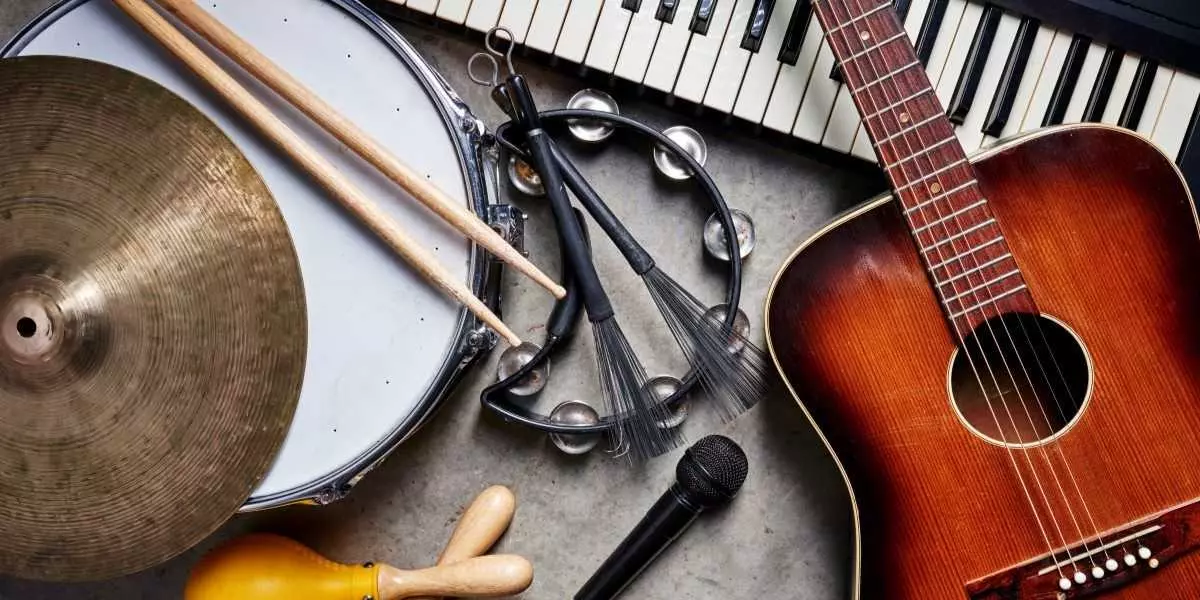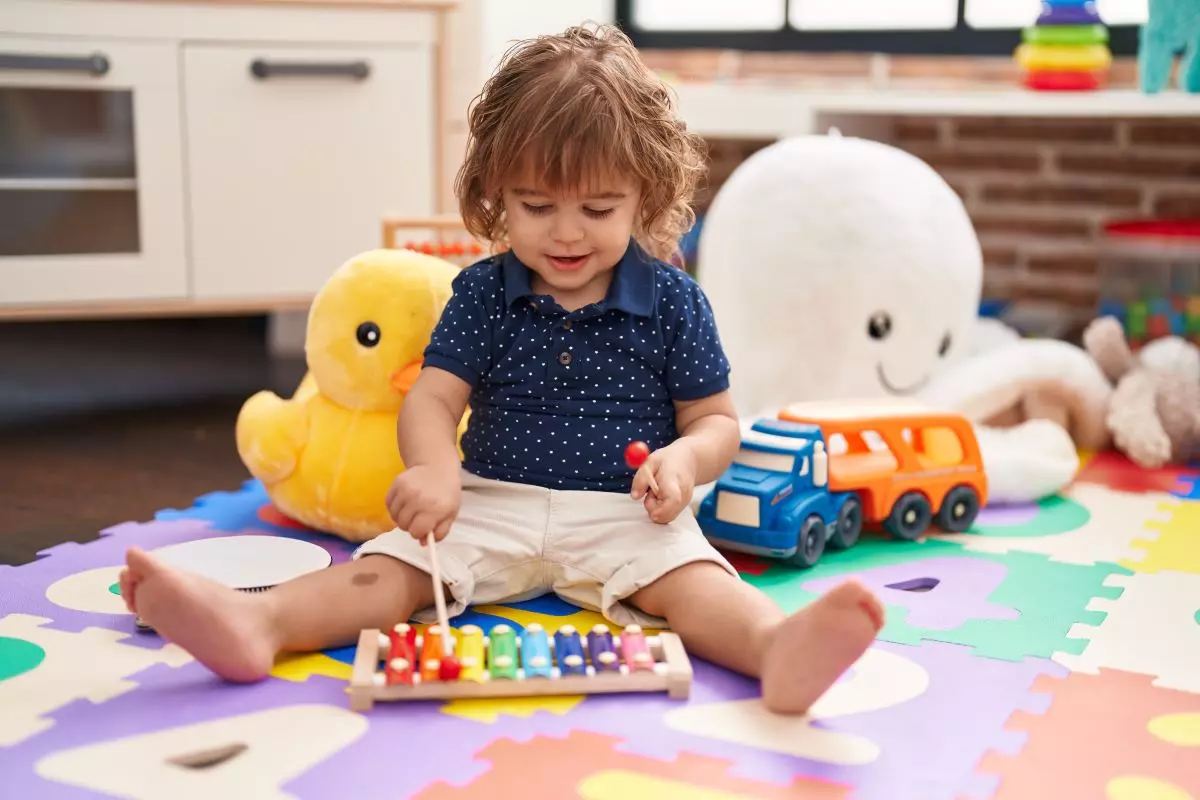10 Reasons Why Everyone Should Learn an Instrument

Learning to play a musical instrument can be one of the most rewarding experiences in life, regardless of age. Whether you're a child just starting your musical journey or an adult looking to rekindle an old passion, learning the language of music has many benefits.
Learning an instrument has many benefits. This blog will cover critical reasons everyone should play, including physical, mental, and spiritual benefits. Here are ten compelling reasons why everyone should learn an instrument and start playing today!
1. It Keeps Your Brain Young
Learning an instrument can make you more intelligent for reasons that may not initially seem obvious. It promotes brain development in the same areas related to language and reasoning skills for children. Studies show that children who learn music tend to perform better in math and reading.
Adults also benefit from learning a new instrument cognitively. Music stimulates the brain and improves memory, cognitive ability, and problem-solving skills, similar to how athletes engaging in physical activity continue to work the heart and keep people young. Playing an instrument is a great way to keep your brain sharp regardless of age.
2. Music Can Be Therapeutic
Music is a powerful form of self-expression. Playing an instrument allows you to convey emotions that might be difficult to articulate with words. Listening to music lightens your mood, positively affects your heart rate, and reduces anxiety and depression. Children can explore their feelings through music, nurturing emotional intelligence and resilience.
Teenagers and adults often find playing an instrument a therapeutic outlet, helping to reduce stress and anxiety while providing a sense of accomplishment. The idea that one can create music or play their favourite artists' songs by reading music from a book is indescribable.
“While playing, I find myself in a Zen state of mind where I can truly live in the moment.”
3. Improves Social Skills and Sense of Community
Learning an instrument can lead to opportunities for social interaction and team building. Children can participate in band or orchestra settings, encouraging teamwork and cooperation at an early age. Music has the power to bring people together, creating bonds and experiences that can last a lifetime.
For adults, joining community music groups or classes can help build new friendships and a sense of belonging in everyday life. My time playing in band settings taught me invaluable life experience about working in a group and significantly improved my ability to communicate my thoughts in a healthy way.
4. Teaches Discipline & Time Management Skills
Learning a musical instrument requires practice, patience, and perseverance. Learning an instrument and implementing a regular schedule teaches valuable life skills beyond music. For example, children's time management skills improve as they age, as they are juggling school, work, and homework.
Adults also benefit from this training, as it reinforces the understanding that consistent effort leads to improvement and success in any area of life. Not only is it beneficial for yourself as an adult, but passing those traits to your children makes you proud and gives a sense of accomplishment.
“I think music is an instrument. It can create the initial thought patterns that can change the thinking of the people.” - John Coltrane.
5. Enhances Coordination
Playing a musical instrument involves various physical skills, including hand-eye coordination and fine motor skills. This musical journey enhances children's overall physical development and cultivates essential skills that can improve their sports performance and boost their self-confidence.
For adults, playing an instrument extends beyond mere enjoyment. It serves as an effective way to preserve dexterity and coordination. This is particularly helpful in maintaining the agility and precision our hands and fingers need, enriching our physical and cognitive well-being as we age.
6. Improves Personal Growth
Music is a lifelong journey. Learning to play an instrument provides endless growth opportunities, whether you're a child taking your first lessons or an adult returning to an instrument after years away.
Learning music encourages a mindset of lifelong learning, pushing yourself to improve and expand your skills and craft. This quest for knowledge can lead to newfound passions and interests that enrich life and make you feel like you are “levelling up.”
Many people pursue music as a career by enrolling in music education programs. For aspiring professional musicians, attending post-secondary education is one of the most effective ways to acquire the necessary skills and theoretical knowledge to reach their full potential.
Conversely, some individuals prefer to engage with music as a hobby, signing up for music lessons, gaining musical training, and advancing from there.
“Music is great because you can do that pretty much until you drop.” -John Petrucci.
7. Exposes You To Cultural History
Every instrument has its own rich history and cultural significance. Learning an instrument provides a unique window into different musical traditions and cultures. Understanding music history can teach more about how history influences music evolution.
For children, this can foster a broader understanding and appreciation of diversity and understanding of how every piece of music has been valued and performed in different cultures. Adults can explore genres and styles they may not have encountered before, deepening their cultural awareness and connection to the world around them.
“Learning the Koto while on my trip to Japan allowed me to experience a piece of history and an important cultural instrument, which I will never forget.”
8. Increases Self-Confidence
Playing an instrument helps boost self-confidence. Achieving milestones in music—whether it's learning a new song, performing in front of others, or mastering a challenging technique—can significantly boost self-esteem.
This sense of achievement fosters confidence and encourages children to take on new challenges. For example, learning to combat stage fright by performing in a school talent show.
Regardless of your age, even as an adult, playing music enhances your self-image.
Surrounding yourself with friends and family at a campfire or just playing a song at a family party provides a sense of fulfillment and purpose.
9. Music is Fun!
We can explain for days the scientific research that has been done about the benefits of learning a musical instrument - But at its core, music is about enjoyment.
Playing an instrument is a fun and fulfilling activity that brings joy into daily life. Music offers a delightful escape from reality, whether jamming with friends, performing at events, or simply enjoying a quiet moment alone. This sense of fun is just as crucial for children as for adults, encouraging a playful and creative mindset.
“Sharing your passion live is an unforgettable experience that brings people together and creates lifelong memories.”
10. Music Connects Families
Music has the power to connect generations. Many families pass down musical traditions, with children learning instruments that their parents or grandparents once played. This connection can create a sense of heritage and continuity, enriching family bonds. For adults, sharing music with loved ones can create lasting memories and experiences that resonate through time.
Everyone Should Learn to Play an Instrument
Whether you’re considering enrolling your child in music lessons or contemplating picking up an instrument yourself, there are countless reasons to learn an instrument. Music offers many advantages for individuals of all ages, from cognitive benefits to self-expression and social connections.
Long & McQuade offers private one-on-one lessons custom-tailored to the needs and goals of the individual student, as well as a variety of group lessons. Students range from children just beginning their journey in music to those prepping for university, from young adults who just like to sing to seniors who enjoy music and the social aspect.
Embrace the joy of music and discover the transformative power of learning an instrument. Whether you dream of playing the piano, shredding an electric guitar, or mastering the violin, there’s no better time to start your musical journey.












